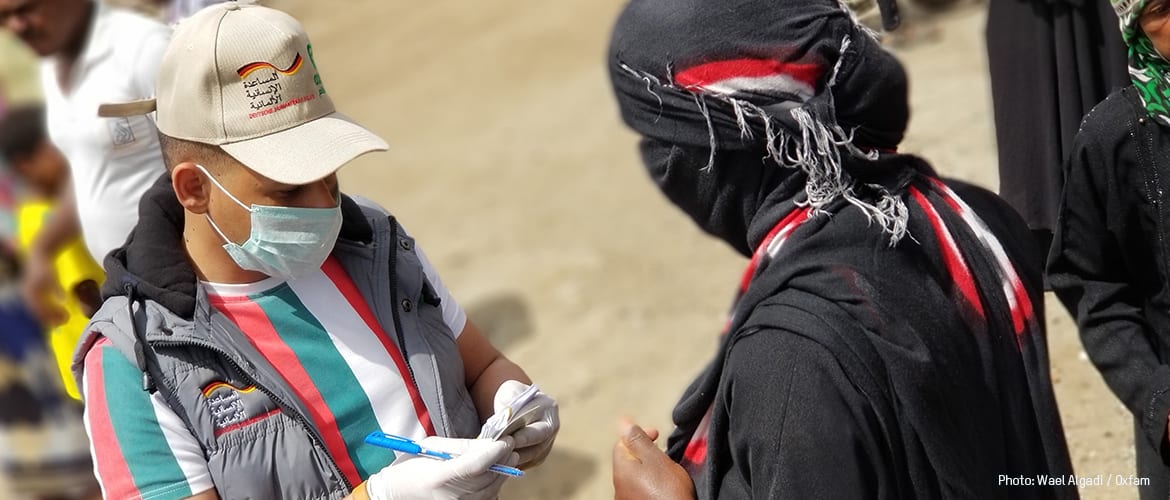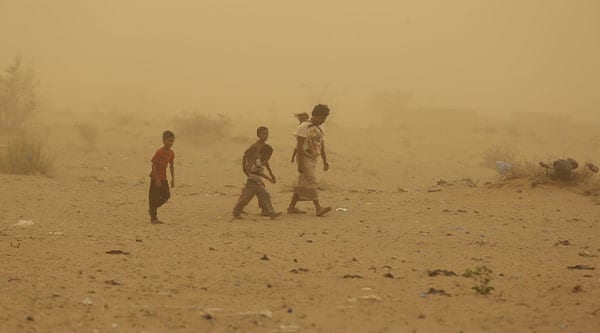
Photo: Moeen Alzuriqi (Protection Officer) at hygiene kit distribution in Alkoba IDP Camp, Taiz, Yemen. Hygiene kit distribution activities conducted by staff from Oxfam’s Taiz office took place over 3 days from 24th March 2020.
As the first case of coronavirus is confirmed in Yemen, Muhsin Siddiquey, Oxfam in Yemen’s Country Director said:
“The first confirmed case of coronavirus in Yemen is a devastating blow to a country that is ill-equipped after five years of brutal conflict to contain its spread.
“Over 17 million people have no access to clean water. For a third of Yemenis who are living in crowded camps and shelters, social distancing and frequent handwashing are extremely difficult.
“Only half of Yemen’s health centres are functioning, and there are widespread shortages of medicine, equipment and medical staff.
“The spread of coronavirus just as aid to parts of the country is reduced could be catastrophic for millions of people already living on the brink.
“The ceasefire must be urgently agreed by all parties to allow full, safe humanitarian access to ensure Yemeni families have the best chance to contain the virus.”
END//
Notes to editors
- Oxfam is responding to the threat of the coronavirus pandemic in Yemen by ramping up public health promotion and awareness-raising initiatives as well as through the distribution of hygiene kits throughout the country. Our team is responding by training community health volunteers to raise awareness of the virus and help prevent the spread of the virus.
- USAID has already announced a suspension in aid assistance to the North of Yemen.






